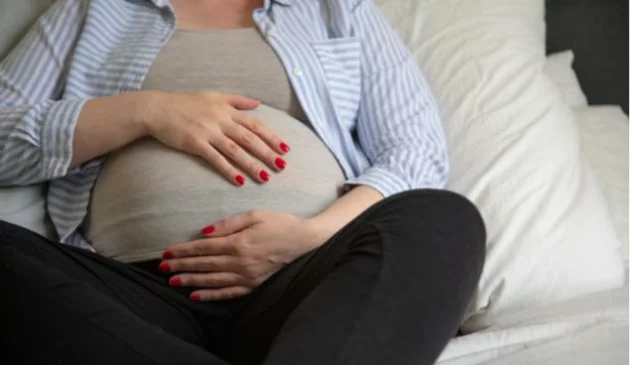Introduction
Hemorrhoids—swollen veins in the lower rectum and anus—are a common discomfort during pregnancy and the postpartum period. Hormonal changes, increased pressure on pelvic veins, and bowel irregularities make pregnant women and new mothers particularly prone to developing hemorrhoids. While usually not dangerous, hemorrhoids can cause pain, itching, and bleeding, impacting quality of life during a time that should be joyful.
This article explores the causes of hemorrhoids during pregnancy and after childbirth, symptoms to watch for, prevention strategies, and safe relief options tailored to expectant and new mothers.
Why Are Hemorrhoids Common During Pregnancy?
Pregnancy creates several physiological changes that increase the risk of hemorrhoids:
1. Increased Pressure in the Pelvic Area
- As the uterus grows, it presses on veins in the pelvis and lower abdomen.
- This pressure slows blood return from the lower body, causing veins in the rectal area to swell.
2. Hormonal Changes
- Pregnancy hormones, especially progesterone, relax the walls of blood vessels.
- Relaxed veins are more prone to swelling and stretching.
3. Constipation
- Hormones slow bowel movements.
- Prenatal vitamins containing iron can harden stools.
- Constipation leads to straining during bowel movements, increasing hemorrhoid risk.
4. Increased Blood Volume
- Blood volume increases during pregnancy, adding to the pressure on veins.
Hemorrhoids in the Postpartum Period
After childbirth, especially following vaginal delivery, hemorrhoids can worsen or newly develop because of:
- Straining during labor and pushing.
- Perineal swelling or trauma.
- Continued constipation or dehydration.
- Sitting for prolonged periods due to discomfort or breastfeeding.
Common Symptoms of Pregnancy-Related Hemorrhoids
- Pain or discomfort around the anus, especially when sitting.
- Itching or irritation.
- Swelling or lumps near the anus.
- Bright red bleeding during or after bowel movements.
- Mucous discharge or a feeling of fullness.
If symptoms are severe or accompanied by heavy bleeding, it’s important to consult a healthcare provider to rule out other conditions.
Preventing Hemorrhoids During Pregnancy and Postpartum
Prevention focuses on minimizing strain and improving blood flow:
1. Eat a High-Fiber Diet
- Include fruits, vegetables, whole grains, and legumes.
- Fiber softens stool and promotes regularity.
2. Stay Hydrated
- Drink plenty of water to help prevent constipation.
- Limit caffeine and avoid excessive salt intake.
3. Exercise Regularly
- Gentle walking or prenatal yoga improves circulation and bowel function.
- Always consult your doctor before starting exercise during pregnancy.
4. Avoid Prolonged Sitting or Standing
- Change positions frequently to reduce pressure on pelvic veins.
- Use cushions or doughnut pillows to ease sitting discomfort.
5. Respond Promptly to Bowel Urges
- Don’t delay bowel movements to avoid harder stools.
6. Practice Good Bathroom Habits
- Avoid straining or spending too long on the toilet.
- Use a footstool to elevate your feet, simulating a squatting position for easier bowel movements.
Safe Relief Options for Hemorrhoids During Pregnancy and Postpartum
Many treatments used outside pregnancy may not be safe for expectant mothers, so it’s important to choose gentle, approved methods:
1. Warm Sitz Baths
- Soaking the anal area in warm water for 10-15 minutes several times a day helps reduce pain and swelling.
2. Topical Treatments
- Use pregnancy-safe creams or suppositories recommended by your healthcare provider.
- Avoid products with steroids or harsh chemicals unless directed.
3. Cold Compresses
- Applying cold packs to the affected area can reduce swelling and numb pain.
4. Gentle Hygiene
- Use unscented wipes or water to clean the area; avoid harsh toilet paper.
5. Avoid Heavy Lifting and Straining
- Especially during the postpartum period, give your body time to heal.
6. Stool Softeners
- With a doctor’s approval, mild stool softeners can prevent constipation without harming you or your baby.
When to See a Doctor
Seek medical advice if you experience:
- Severe pain or bleeding.
- Signs of infection: fever, pus, swelling worsening.
- Hemorrhoids that do not improve with home care after a week.
- Difficulty with bowel movements or urination.
Your healthcare provider may recommend additional treatments or evaluate for other conditions.
Delivery Considerations
- Vaginal delivery increases the risk of hemorrhoids due to straining.
- Sometimes, a cesarean section may be recommended for other reasons, but it doesn’t necessarily prevent hemorrhoids.
- Discuss delivery options and potential risks with your obstetrician.
Postpartum Recovery Tips
- Continue a fiber-rich diet and hydration.
- Use sitz baths and cold compresses as needed.
- Avoid constipation through diet, fluids, and gentle activity.
- Gradually increase physical activity as you recover.
- Attend postpartum checkups to discuss any ongoing hemorrhoid symptoms.
Conclusion
Hemorrhoids during pregnancy and postpartum are common but manageable with the right knowledge and care. Understanding why they occur helps you take preventive steps, while safe relief options can ease discomfort and speed healing.
If symptoms persist or worsen, professional medical evaluation ensures appropriate treatment and peace of mind. With proper attention, you can minimize hemorrhoid-related discomfort and focus on enjoying your pregnancy and motherhood journey.
FAQs:
Why do hemorrhoids occur more often during pregnancy?
Hormonal changes and increased pelvic pressure from the growing uterus cause veins to swell, increasing hemorrhoid risk.
Are hemorrhoids common after childbirth?
Yes, straining during labor and delivery, along with constipation and swelling, can cause or worsen hemorrhoids postpartum.
What home remedies are safe for hemorrhoids during pregnancy?
Warm sitz baths, cold compresses, gentle hygiene, high-fiber diet, and plenty of water are safe and effective.
When should I see a doctor for hemorrhoids while pregnant?
If you have severe pain, heavy bleeding, signs of infection, or symptoms that don’t improve after a week of home care.
Can exercise help prevent hemorrhoids during pregnancy?
Yes, gentle activities like walking or prenatal yoga improve circulation and reduce constipation, helping prevent hemorrhoids.






